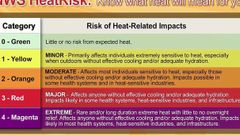Dengue fever, also known as breakbone fever, is a mosquito-borne tropical disease caused by the dengue virus. Symptoms include fever, headache, muscle and joint pains, and a characteristic skin rash that is similar to measles. In a small proportion of cases the disease develops into the life-threatening dengue hemorrhagic fever, resulting in bleeding, low levels of blood platelets and blood plasma leakage, or into dengue shock syndrome, where dangerously low blood pressure occurs. Dengue is transmitted by several species of mosquito within the genus Aedes, principally A. aegypti. The virus has five different types; infection with one type usually gives lifelong immunity to that type, but only short-term immunity to the others. Subsequent infection with a different type increases the risk of severe complications. As there is no commercially available vaccine, prevention is sought by reducing the habitat and the number of mosquitoes and limiting exposure to bites. Treatment of acute dengue is supportive, using either oral or intravenous rehydration for mild or moderate disease, and intravenous fluids and blood transfusion for more severe cases.

- Next Weather: Heat risk zones and Dengue fever

- Dengue fever is surging across the Americas

- Dr. Eric Griggs on the mosquito-borne Dengue Fever epidemic in Peru







